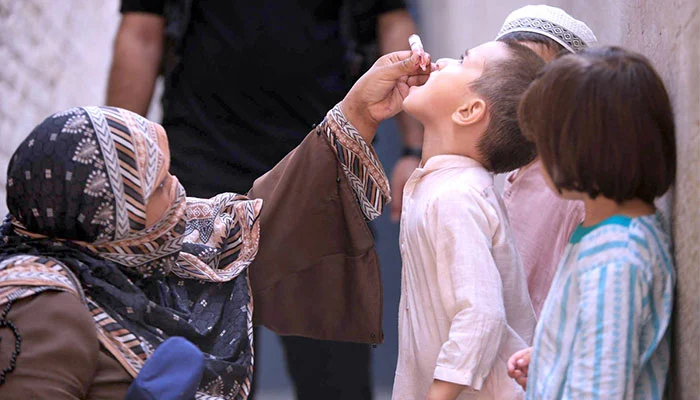
Polio is once again spreading in Pakistan. Officials report that more than 1 million children missed their vaccination doses last month. This situation highlights the ongoing challenges in eradicating one of the world’s most stubborn diseases. In October, Pakistani officials confirmed over a dozen new polio cases.
This brings the total number of infections this year to 39. Last year, the country reported only six cases. At that time, Pakistan seemed on the verge of eliminating the virus.
Ayesha Raza, the Focal Person to the Prime Minister on Polio Eradication, identified low vaccine uptake as the main reason for the recent increase in cases. She noted that around 1 million children missed their polio vaccinations in September. This missed opportunity has compounded a pre-existing immunity gap that grew during the COVID-19 pandemic.
Polio is a highly infectious viral disease that primarily affects children under five. It attacks the nervous system and can cause paralysis, respiratory issues, and even death. The disease spreads mainly through contaminated water or food. Although there is no cure, vaccination can prevent polio. Thanks to immunization campaigns, global polio cases have decreased by over 99% since the 1980s.
According to the World Health Organization (WHO), Pakistan and neighboring Afghanistan are the only countries where polio remains endemic. Recently, the WHO warned of a resurgence of polio in Gaza after more than a year of conflict.
Distrust and Misinformation
In Pakistan, home to over 240 million people, vaccination programs face significant challenges. Historical distrust of foreign healthcare providers hampers efforts. Allegations surfaced that U.S. intelligence used a fake immunization program in Abbottabad to capture Osama bin Laden in 2011. This event heightened fears and skepticism regarding vaccination efforts.
Moreover, religious beliefs and a lack of awareness about polio’s dangers hinder public health initiatives. International NGOs and Pakistani authorities have worked hard to counter misinformation and vaccinate children. However, false information continues to circulate.
Recent cases of polio cluster in Balochistan province, which borders Afghanistan. Local officials report that parents hesitate to vaccinate their children due to prevalent misinformation and distrust of health workers. Many of the children infected had only received partial vaccinations. They did not complete all four required doses, as stated by Raza.
Reported cases are likely to rise further as Pakistan enhances its surveillance efforts. Raza stated, “A lot of work is being done to fill the gaps that we’ve missed in the past.”
The uptick in polio cases coincides with an increase in violent attacks on vaccination clinics. Militants have targeted anti-polio campaigns in Pakistan for decades. Some falsely claim that vaccines serve as a Western conspiracy to sterilize children.
This year, Khyber Pakhtunkhwa province experienced 27 attacks on polio workers, according to a CNN tally confirmed by police sources. In September, armed militants killed a police officer protecting a vaccination site in Bannu. Protests erupted following this incident. Additionally, a police officer and a polio worker were killed in a separate shooting in Bajaur.
Impact of Community Boycotts
Aftab Kakar, a representative for the Emergency Operation Center in Balochistan, highlighted that protests, insecurity, and community boycotts disrupt vaccine campaigns. These issues leave behind children who could sustain virus transmission. Health workers typically mark children’s fingers to indicate vaccination. However, some children have been incorrectly marked as vaccinated when they were not, Kakar noted.
Follow us on Google News, Instagram, YouTube, Facebook,Whats App, and TikTok for latest updates
